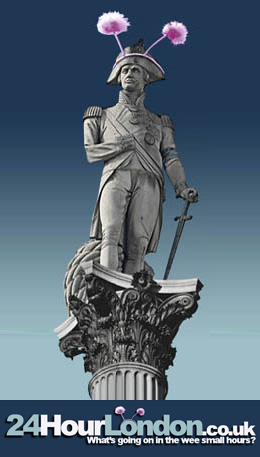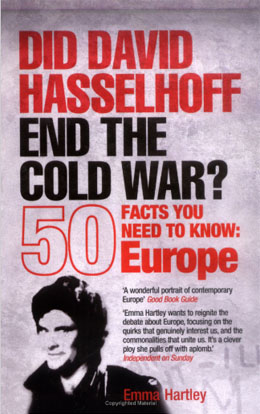For his part, Shane MacGowan - who is going under the nom de guerre "O'Hooligan" when we first meet him - arrives in the book of Fearnley's life apparently fully formed, already defined by a chronic alcohol dependence, his stunted brown teeth ill-concealed by a set of crowns. His response to the news of his expulsion, a wheezing "What took you so long?"
Fearnley, the Pogues' multi-instrumentalist accordian player, narrates his tale of substance abuse and the seething emotional condition of a band containing several highly volatile characters, with an even-ness that speaks of the very long time over which the book was written: apparently more than eighteen years. It has the quality of a well-worn pebble, something polished by time and the forces of life, and is none the worse for that in these days of instant online media. The story is structured in such a way that Fearnley, a Mancunian recently ex-public schoolboy at the outset, jets off into the west to live with his Californian princess - the actress daughter of a successful movie producer - as the credits roll, whereas years of alcoholic excess and life on the road must surely have made the transition to a new life a little more complicated than that. Yet there is an absence of ego at the heart of his writing that legitimises his version of events: a story has to begin and end somewhere, right?
It's certainly impossible to believe that someone who was drinking as heavily as Fearnley (below in 1988, further down today) says he was, could recall so much detail, for instance about the behaviour of individual band members - facial expressions, eye-contact - at gigs that, after a while of everyone standing in the same relation to each other on stage night after night, would have rolled seamlessly into one.
And yet there is so much colour dancing in his perfect prose, so much emotional accuracy about appallingly messy events and so much acute pain - emotional and physical - here that it's impossible to doubt the book's veracity in relation to the things that matter. Fearnley admits that, of necessity, it's partly fictionalised and MacGowan's quote on the back cover - "It's just how I imagine I'd remember it" - says it all really.
Among the many priceless set-pieces are an unflinching description of MacGowan urinating on a roadside, heedless of the usual niceties, another occasion on which his stock with the band was so low that repeated slurred demands for a cigarette yielded nothing more than a refusal by the others to betray each other by giving him anything, and the transition of Cait O'Riordan, The Pogues' only female member, from emotionally inept wild-child to beatnik Cleopatra opposite Elvis Costello's Antony. (Reader, she married him.) Her psychological footprint presses nearly as deeply as MacGowan's in the earlier chapters. There are also painful passages about Fearnley rooming with his gay band-mate Philip Chevron, who proceeded to fall in love with him, which are delicately and respectfully handled.
Witty turns of phrase combine neatly with their subject matter to become unforgettable. Of his early years in London Fearnley wrote: "Gigs, so far, had been ordeals of unrequitedness, a series of sporadic confrontations with an audience's neutrality." The Dubliners were "older men, hirsute, portly, moist of consonant"; whereas Bono's singing with U2 was "the grand incantation of phrases resembling advertising copy" (god I wish I'd written that).
From this rich palate bigger themes emerge: the dynamic of a band under threat from within, the recognition of and responsive roar by The Pogues' audience to their fierce Anglo-Irish underdoggedness, the tolerance required to manage extremity.
But lurking disturbingly at the centre of it all is the conundrum of the attractive-repulsive Shane MacGowan. As Fearnley writes: "More and more the question on people's lips was whether Shane wrote so beautifully because of the amount he drank, or despite it." There are clues, though nothing vastly illuminating, to what in his background leads him to value his health so little - how is it possible that he's still alive today? - or to have such a relentlessly negative world view. "I couldn't understand how anyone could let himself become so bereft of responsibility for anything and yet write songs of such incisive beauty, full of chastening pity for the human condition," writes Fearnley. MacGowan's family makes a brief appearance during a description of a gig in Ireland but are sketched mainly in terms of their clothes and we're told that his childhood "had sometimes been difficult" - though frankly whose wasn't?
I loved The Pogues as a teenager and I love them still, for the albums and for their terrifying, riotous live shows. I learnt more detail about the extremes of substance abuse reading Here Comes Everybody than I did during several years as a nurse, but am glad to have done so in such witty and erudite company.
James Fearnley is a brilliant writer, this book is a gem and I urge you to read it.
* Here Comes Everybody is published by Faber.
* If you enjoyed this post you may also be interested in this, which is about the London Feis in Finsbury Park and includes a vivid description of a Shane McGowan performance.
* If you'd like posts from this blog to arrive in your Facebook news feed you could make it so by *liking* its Facebook page and then using the drop-down menu to indicate that this blog is one of your "interests". This will enhance the probability that you'll receive the notifications. You could also follow me on Twitter @emma1hartley
























